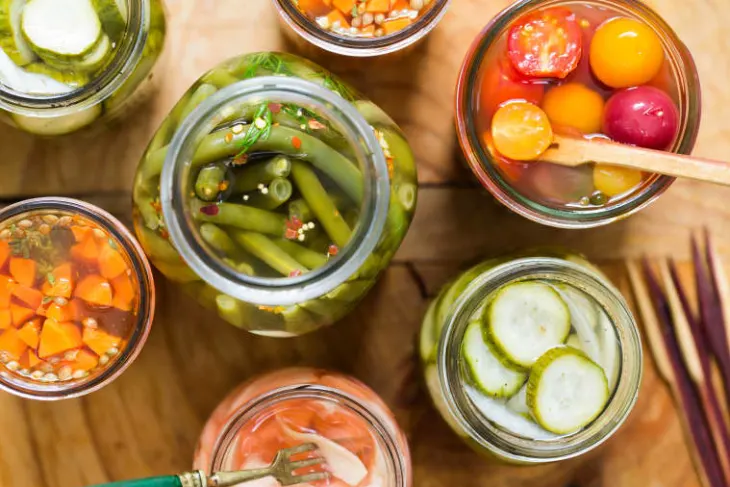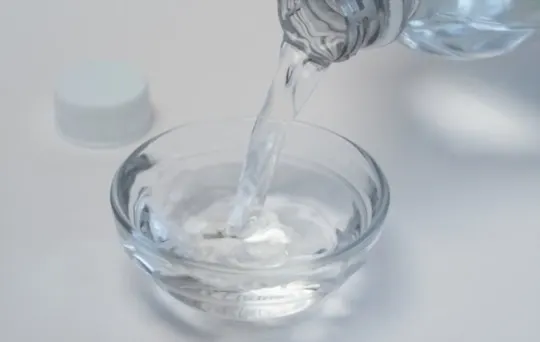Pickling has been a popular method of preserving fruits and vegetables for centuries, allowing us to enjoy their flavors and nutrients long after their season has passed.
One essential ingredient for a successful pickling process is vinegar, which not only adds that tangy, mouthwatering taste but also acts as a preservative to keep the produce fresh and safe to eat.
But which vinegar should you use for the best pickling results?
What are the best vinegars for pickling? The best vinegars for pickling are apple cider vinegar, white distilled vinegar, red wine vinegar, rice vinegar, and malt vinegar. Each of these vinegars offers a unique flavor profile that can enhance the taste of different types of pickled produce, so choosing the right one for your recipe is key.
Whether you’re a seasoned pickling pro or just starting to explore the wonderful world of homemade pickles, understanding the different types of vinegars and how they can impact your pickling endeavors is crucial.
Let’s dive into the 5 best vinegars for pickling and why they should be on your pantry’s top shelf.
How To Pick The Right Vinegar For Pickling?

Pickling is a delightful way to preserve the flavors of your favorite fruits and vegetables, but choosing the right vinegar can make all the difference in the taste, texture, and shelf life of your pickled produce.
With so many vinegars available on the market, how do you pick the one that’s best for your pickling project?
Here are five factors to consider when choosing the right vinegar for pickling:
- Acidity level: The acidity level of the vinegar is crucial for proper preservation and food safety. A vinegar with a minimum of 5% acetic acid is recommended for pickling to ensure that the produce will be adequately preserved and protected from harmful bacteria. Check the label of your chosen vinegar to ensure it meets this requirement.
- Flavor profile: Different vinegars have distinct flavor profiles that can complement or clash with the produce you’re pickling. For a versatile option, choose a mild vinegar like white distilled vinegar or apple cider vinegar. For a more unique and robust flavor, red wine vinegar, malt vinegar, or rice vinegar can be great choices, depending on the ingredients in your recipe.
- Color: The color of the vinegar can also affect the appearance of your pickled produce. White distilled vinegar and apple cider vinegar are clear or light in color, so they won’t alter the color of your pickles. Red wine vinegar and malt vinegar, on the other hand, can impart a darker hue to your pickled goods, which may be desirable or undesirable depending on the outcome you desire.
- Pairing with ingredients: Consider the ingredients you’re pickling and what flavors will best complement them. For example, apple cider vinegar pairs well with fruits and sweeter vegetables, while rice vinegar is ideal for pickling Asian-inspired recipes. Experiment with different vinegars to find the perfect match for your pickling project.
- Availability and cost: Some vinegars may be more readily available and affordable than others, depending on your location. White distilled vinegar is typically the most accessible and cost-effective option, while specialty vinegars like red wine vinegar or rice vinegar may be more expensive or harder to find. Choose a vinegar that fits your budget and is readily available in your area.
The 5 Best Vinegars for Pickling
Pickling is an excellent way to preserve foods.
To achieve the best flavor and texture, it is important to choose the right type of vinegar.
Here are five vinegars that are ideal for pickling:
1. Apple Cider Vinegar
Apple cider vinegar is a popular choice for pickling due to its mild acidity, distinctive fruity flavor, and health benefits.
The natural sweetness of apple cider vinegar pairs well with various types of vegetables, fruits, and spices, making it ideal for a wide range of pickling recipes.
Additionally, apple cider vinegar contains enzymes and probiotics derived from the apples and the fermentation process, promoting digestive health.
When selecting apple cider vinegar for pickling, opt for an organic, unfiltered variety, which features the nutrient-rich “mother” for optimal results.
2. White Distilled Vinegar

An undeniably versatile option, white distilled vinegar is a common pickling staple found in many kitchens.
This vinegar boasts an exceptionally high acetic acid content, preserving your pickles for an extended period while providing a tangy, clean flavor.
White distilled vinegar works well with an array of vegetables and fruits, offering a one-size-fits-all solution for various pickling recipes.
The clear, neutral color of white distilled vinegar ensures the vibrant colors of your pickles remain intact, making it a visually appealing choice for preserving your garden bounty.
3. Red Wine Vinegar
Red wine vinegar, a robust choice for pickling, is derived from fermented red wine, yielding a powerful, tangy flavor profile.
This vinegar adds complexity and depth to any pickling recipe, particularly those involving spicy or Mediterranean ingredients.
Red wine vinegar is perfect for pickling onions, olives, and peppers, infusing your homemade pickles with an unforgettable culinary experience.
While red wine vinegar may slightly alter the color of your pickled goods, it is a small price to pay for the amazing taste it imparts.
4. Rice Vinegar
For a mild, slightly sweet pickling option, rice vinegar is an outstanding selection.
Made from fermented rice, this light, delicate vinegar blends beautifully with both fruits and vegetables, preserving their natural flavors without overpowering them.
Rice vinegar is particularly cherished in Asian cuisine, making it perfect for pickling cucumbers, radishes, and carrots for dishes such as kimchi or banh mi.
To select an ideal rice vinegar for pickling, opt for a plain, unseasoned variety to avoid excess sugar, salt, or artificial additives.
5. Malt Vinegar
Malt vinegar, derived from barley, packs a distinctive, bold flavor that is well-suited for heartier pickling recipes.
With its dark, caramel undertones, this vinegar is excellent for pickling onions, cucumbers, or beets, adding nuance and balance to their profiles.
Due to its strength, malt vinegar works well in recipes that call for longer marinating times, allowing the rich flavors to meld harmoniously.
This classic pickling vinegar brings a delightful, nostalgic touch to your homemade pickles, making them a popular choice for many.
Jenny has always been passionate about cooking, and she uses her platform to share her joy of food with others. Her recipes are easy to follow, and she loves giving tips and tricks to help others create their own unique culinary creations.

